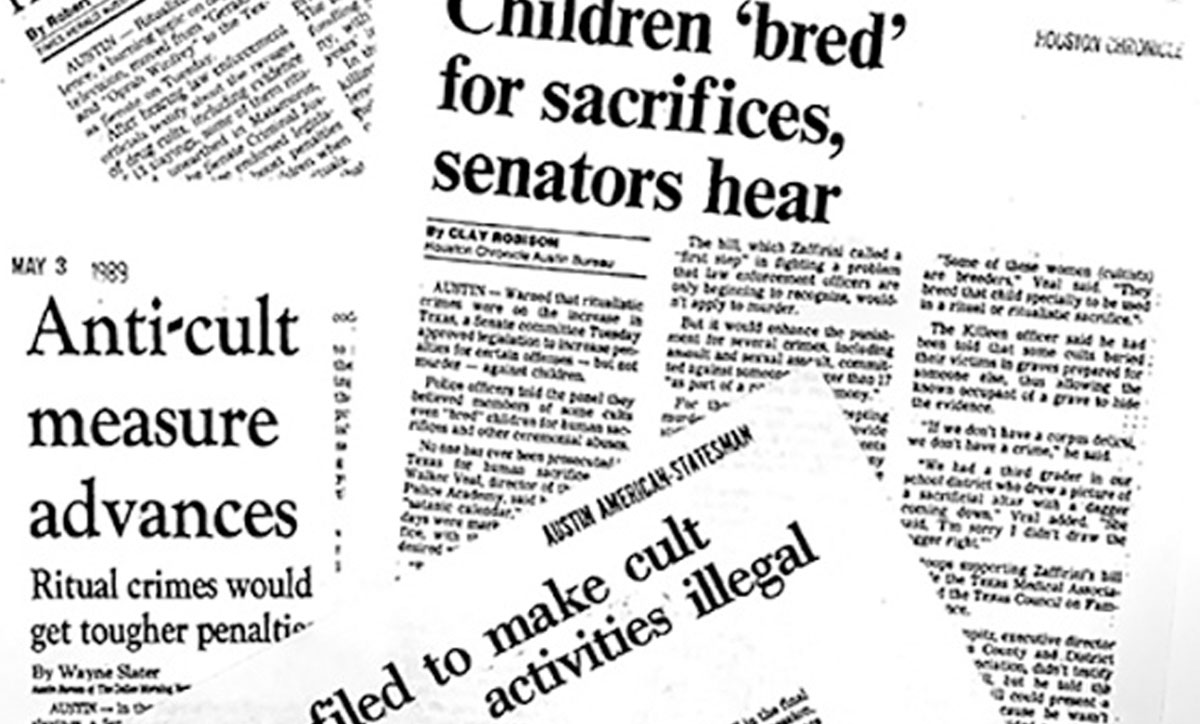
The old saying goes that people fear public speaking more than death. Count me in that group, especially last spring.
I am sitting inside the Galloway building’s auditorium surrounded by my fellow Office of Undergraduate Research winners and wondering if I am in a dream. My mentor, Brendan Gillis, is seated on my left and trying to give me a rundown of what I am expected to do, which is give a small speech over my research proposal — laws that were passed in Texas during the “Satanic Panic” phenomenon and how the ritualistic murder of Mark Kilroy, a college student from Houston, was a catalyst used by the media to spread fear and panic.
The Office of Undergraduate Research is a collaborative space through which student and faculty researchers perform, present and publish scholarly research in their academic disciplines — and I chose Dr. Gillis to guide me through this experience because he had always been an invaluable source of information and always quick to answer my calls or emails.
His face fades in and out and I don’t catch most of what he is saying as my head begins to bob to my chest.
Earlier that morning, I thought it wise to take my three anxiety meds — that were prescribed the day before to combat nausea, vertigo and stress — for the first time.
I was stressed about public speaking and I didn’t even realize my research would be picked for a conference — yet here I was kicking myself for ‘putting myself out there,’ knowing that public speaking was required.
“Am I drooling on myself?” I look down and my shirt is still clean, but my mouth is very wet. My hand feels heavy like lead and I clumsily try to wipe at my face — did I just punch my jaw?
This was not a wise decision, after all.
I lean toward Dr. Gillis with my entire body and try to whisper what’s happening to me and that I cannot give a speech in this condition. I’m actually concerned about descending the stairs to the podium — my fear of falling down and busting out my teeth in front of a crowd would become a reality within a few minutes.
He does not panic.
He patiently and kindly explains that stress happens to everyone and that I had my small speech in my hand to look at in case I forget what I want to say.
I look down and sure enough there is a typed-up speech on a ripped-up piece of paper laying there — and I had forgotten it was even there.
I tell him this and he still shows no sign of alarm.
“Where is this man’s panic button?” I definitely made a correct choice to ask him to be my mentor but did he make the correct choice of saying yes? I needed the qualities that he had at the moment — confidence, calmness and had the assurance that I could go through with the speech. But would I accomplish this unscathed?
I watch in a haze as each name was called and the student makes their way to the podium and give amazing proposals — from a biology student trying to analyze cell growth and the therapeutic efficacy of pancreatic cancer cells under varying oxygen environments to an industrial engineer investigating traffic crashes involving autonomous vehicles. And here I was feeling like I was on an episode of “Are You Afraid of the Dark,” and asking scientists, “Do you want to hear a scary story?”
I was cutting myself short but I am too doped up to feel confident.
My name is called and I push myself off the chair and follow Dr. Gillis to the podium. I introduce myself and monotonously read off my slip of paper. When I think I am done, I hear someone asking a question — now it’s time to panic!
I look over at Dr. Gillis and he takes his cue as if he had his own speech prepared. He had been working with me over the topic for so long that he was able to make his way around the questions.
In that moment, Dr. Gillis wasn’t a professor or mentor, he became greater than any comic book champion — a real life hero.
I thought he would be upset that I was literally out of my mind, but he quickly came to my rescue and saved not only me, but the research I had been working so diligently on.
We made our way back to our seats and I realized that I did make it unscathed — and that’s all thanks to Dr. Gillis’s untiring compassion.
